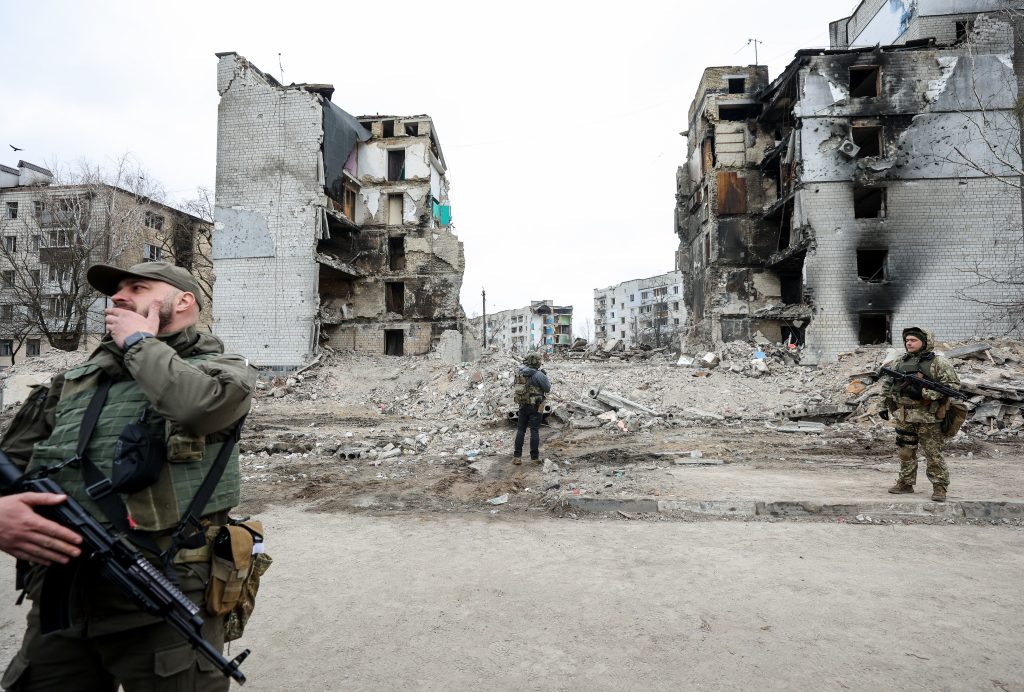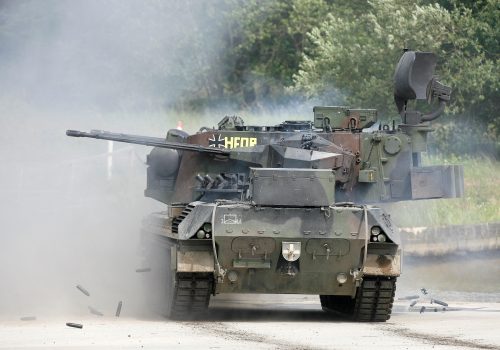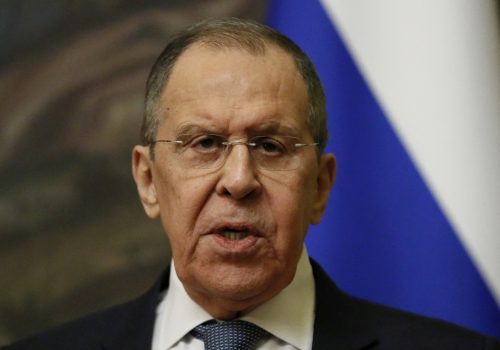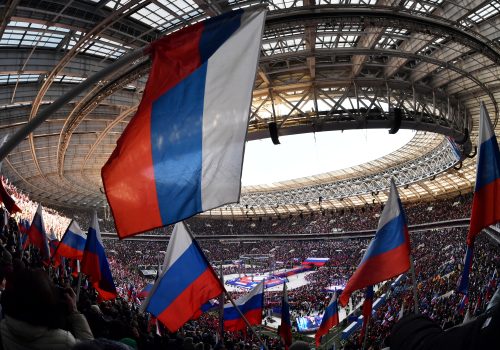Millions of Ukrainians today share the common goal of defeating Russia. As a nation, we know that unless we are successful, Ukraine will cease to exist.
During the first two months of the conflict, the Kremlin’s genocidal agenda has become increasingly apparent. Putin’s troops have destroyed entire cities and butchered thousands of civilians in mass killings that recall the worst excesses of the totalitarian twentieth century. Meanwhile, policies of forced deportation and systematic russification in occupied regions of the country leave little room for doubt that the Kremlin aims to extinguish Ukrainian statehood entirely.
While Russia’s imperial intentions are clear, Ukraine is fighting back and has demonstrated that it is more than capable of defending itself. So far, the Ukrainian Armed Forces have secured an historic victory in the Battle for Kyiv and forced Putin’s army to withdraw completely from northern Ukraine. The focus has now shifted to the eastern front of the conflict, where Ukraine has brought a renewed Russian offensive to a virtual standstill.
Ukraine’s progress on the battlefield is a source of enormous pride for all Ukrainians. However, we are also well aware that even if our troops succeed in thwarting Putin’s criminal plans, we will face the extremely difficult challenge of rebuilding our shattered country. With every new day of destruction, the eventual price tag for rebuilding Ukraine continues to grow.
The task ahead already looks daunting. We must create the conditions so that more than five million Ukrainians who have fled the country are able to return. This means providing housing for those who have lost their homes. It means restoring critical infrastructure across the country and creating employment opportunities for millions who now find themselves without jobs.
Failure to do so will dramatically undermine the impact of any military success. If Ukraine loses a significant portion of its population due to the war, the national recovery will take decades. Without economic development, Ukraine will struggle to integrate into the European Union or provide the security that the whole of Europe needs.
Stay updated
As the world watches the Russian invasion of Ukraine unfold, UkraineAlert delivers the best Atlantic Council expert insight and analysis on Ukraine twice a week directly to your inbox.
In order to navigate the post-war period effectively, Ukraine will require competent management and a comprehensive strategy. Most of all, the country will need unprecedented financial resources.
Ukrainians know they can count on the continued support of international partners. However, it would be an act of historical justice to make Russia pay for the devastation caused by Putin’s war. Nobody in Ukraine expects Russia to do so voluntarily, of course. Instead, the international community must oblige Moscow to cover the cost of rebuilding Ukraine.
At present, the US, UK and a number of individual European countries hold hundreds of billions of dollars in Russian assets including over $350 billion of frozen reserves from Russia’s Central Bank. These reserves could serve as the basis for the reconstruction of post-war Ukraine. Russia will certainly not give up on this money without a legal battle. There are also questions over the legality of any attempts to seize and redistribute these frozen assets. It is therefore likely that efforts to make Russia pay will require the adoption of new legislation.
Allocating frozen Russian assets to finance Ukraine’s recovery would not be completely unprecedented. There are numerous examples of the United States using sanctions mechanisms to seize money from rogue regimes including Afghanistan, Iran and Iraq. The most effective approach in the current circumstances would be approval of a new mechanism by Congress that would allow the US to use frozen Russian assets to support Ukraine. European countries could also adopt similar acts.
Eurasia Center events

How would Ukraine use Russian assets allocated to the country as reparations? Much would depend on the time required to make these assets available.
If securing access to Russian assets proved achievable within a matter of weeks, the resulting funds could support the Ukrainian military while providing desperately needed aid for millions of internally displaced Ukrainians and those living in areas recently liberated from Russian occupation. If Russia’s frozen assets only become available to Ukraine following the end of hostilities, they would likely be used to finance major construction works including infrastructure repairs and residential accommodation.
Western leaders must view the task of securing Russian assets as part of broader efforts to support the Ukrainian war effort. The slower they are in providing Ukraine with the weapons, funding and other resources that the country urgently needs, the longer it will take to end the war and the higher the price will be for the eventual reconstruction of Ukraine. More Ukrainian cities will suffer the fate of Mariupol and more Ukrainian civilians will become victims of Russian atrocities.
The clock is ticking. Economies around the world are already feeling the negative impact of Putin’s invasion. If Western indecision allows hostilities to drag on, food shortages will escalate further. Meanwhile, the Ukrainian people will continue to suffer the dire consequences of an unprovoked war of aggression. One way or another, Russia must pay for the invasion of Ukraine. The right time to act is now.
Kira Rudik is leader of the Holos party and a member of the Ukrainian parliament.
Further reading
The views expressed in UkraineAlert are solely those of the authors and do not necessarily reflect the views of the Atlantic Council, its staff, or its supporters.

The Eurasia Center’s mission is to enhance transatlantic cooperation in promoting stability, democratic values and prosperity in Eurasia, from Eastern Europe and Turkey in the West to the Caucasus, Russia and Central Asia in the East.
Follow us on social media
and support our work
Image: Ukrainian troops patrol next to the ruins of buildings destroyed by Russian shelling in Borodyanka, Kyiv region. April 13, 2022. (Photo by Sergii Kharchenko/NurPhoto)




